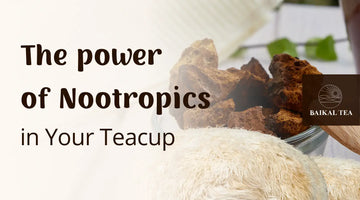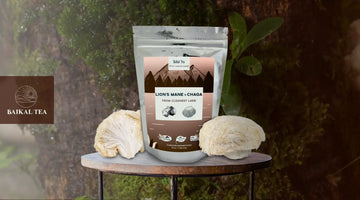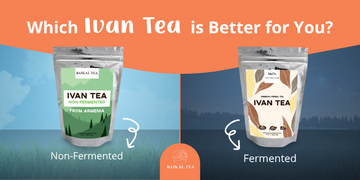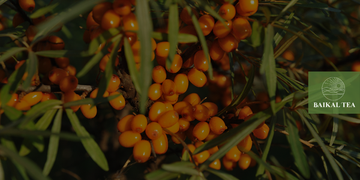Inflammation and Pain
Inflammation can include a wide range of symptoms from many causes.
Some are obvious, like a sprain...
But others are silent and slow to see or feel, creating flare-ups that seem to come out of nothing.
In either case, learning to recognize your body’s signals and which herbs will turn down the inflammation burner will help you become pain-free.
Helpful Tips For Treating Inflammation and Pain
As you may already know, at Baikal Tea we stand for fixing the causes, not the symptoms.
To kick inflammation out of your life, we recommend you begin with carefully reviewing your diets.
The food we eat is a major cause of inflammation, so it is the first obvious thing to look at:
-
Remove any processed foods from your diets–processed foods are packed with bad oils and ingredients, which create excessive inflammation in our bodies
-
Try to switch to organically grown foods, as they reportedly have 2 to 5 times more nutrients than nonorganic foods.
But most importantly, eating organic will decrease your exposure to pesticides, which increase inflammation.
-
Remove vegetable oil from your life completely. This stuff is used almost everywhere you look at, but it is extremely bad for us.
Foods to Avoid During Inflammatory Flare-ups
How does the saying go?
"The beauty requires sacrifice"...?
Well, in order to stay healthy and feel well, we need to purge unnecessary foods from our diets.
Below is the list of foods to avoid if you want to lessen inflammation pains. These foods and beverages are notorious for causing excessive inflammation.
Avoiding at least some of these inflammation drivers is a necessary sacrifice for pain-free and inflammation-free living.
Start with removing 1 or 2 of the following things. You don't have to start with your favorite foods, but eventually it'll be better if you remove as many of them as you can.
A List of Inflammatory Foods
Try to avoid these to reduce inflammation:
-
Beverages–Coffee, soda, juice, caffeinated teas, alcohol.
-
Dairy–Cheese, animal milk, and commercial eggs. (Small amounts of organic eggs and butter are good).
-
Fruit–Citrus fruits except lemon.
-
Grains–Avoid white flour and other grains if sensitive.
-
Meat–Beef, pork.
-
Nuts and seeds–Peanuts and peanut butter.
-
Seafood–Shellfish: shrimp, crab, lobster, clams.
-
Sweeteners–Sugar and other "white" processed sweeteners.
-
Vegetables–Tomato, potato, pepper, eggplant.
How to Substitute the Inflammatory Foods
"But wait!"–you might think–
"...this covers most of my diet! What am I supposed to eat?"
If this is your case, then you are a part of the majority of people in the US.
Unfortunately, our diets are less than ideal, and the stuff they show on TV is mostly crap! (Sorry, not sorry...)
But for those of us who want to stay healthy, it is our job to learn what's better for us.
Below, we've combined some of the top tips for avoiding the inflammatory foods:
-
Build better drinking habits–this one is actually simple with Baikal tea. As you drink less coffee, caffeinated teas, or alcohol, you are still going to have some cravings.
These withdrawals are natural. Just steep a cup of Baikal Tea instead of your second cup of coffee.
We've noticed that a can of regular tasteless bubbly can alleviate some of the cravings (especially for beer, and sodas).
That said, you can keep your first morning cup of joe for now, until you can completely ween off of it.
-
Remove vegetable oil–This one is a must, if you want a longer and healthier life.
Don't use vegetable oil in cooking, and don't buy anything that has veggie, canola, grapeseed, and other bad oils in the ingredients.
Use virgin olive oil, coconut oil, and butter for cooking.
-
Good fruits–Cantaloupe, rhubarb, melon, strawberries, apricot, blackberries, cranberries, papaya, peach, plum, raspberries, kiwi.
Try to avoid bitter fruits like apple, blueberries, cherries, grapes, pear, pineapple, pomegranate, banana, fig, or prune, unless you bake them...
If possible, bake the fruit before eating (such as a baked apple or pear).
-
Good grains–Amaranth, barley, buckwheat, millet, quinoa, basmati rice, brown rice, rye, teff, rice crackers, wheat-free crackers.
-
Meat–Organic or free-range chicken and turkey, wild game, lamb. Eat only meat, not skin.
-
Good nuts–Ground flax, pumpkin, sesame; cooked grains; nuts and seeds, including nut butters.
-
Seafood–Ocean fish are an excellent source of essential fatty acids and should be eaten two or three times per week. Poach, bake, or broil wild (not farmed) cold water fish.
Avoid farm-raised fish.
-
Vegetables–Steaming vegetables helps our digestion and extraction of food nutrients.
Use minimal raw vegetables except as a salad. Eat at least one or two green vegetables each day:
Asparagus, bean sprouts, broccoli, red and green cabbage, cauliflower, celery, cucumber, lettuce (green, red, romaine, mixed greens), radishes, spinach, watercress, string beans, beets, bok choy, brussels sprouts, chives, collards, kale, kohlrabi, leeks, onion, parsley, red pepper, pumpkin, rutabaga, turnip, zucchini
Some artichoke and sweet potato.
What about Herbal tea?
Good job on reading thus far!
You've carefully reviewed the main cause of inflammation–your diets.
And hopefully, you've noted a few things you want to change with your food.
But what about herbal tea? Can it help reduce inflammation?
It definitely can! Here's what Jennifer, one of our favorite customers wrote about Ivan tea:
"I have purchased this item several times from this seller. It is a great product. It works better than any other item I have used as an anti-inflammatory. The taste is mild and rather soothing. I like the product so much that I have shared it with friends and family."
And Jennifer is not alone.
We see hundreds of people telling the same thing in reviews:
"Love this tea I really believe it has helped so much with my inflammation. I will definitely buy it again. It tastes so good as well." -Amazon customer
"I bought this for my wife who has RA and since she has been drinking the tea her inflammation has decreased and she feels much better. We will continue to use this product!" –Stefan Kappes
Wild herbal tea also helps with arthritic and other kinds of joint pains:
"It works! After one week my arthritic hands and knee are not as painful and I have better dexterity! Karen C. Thomas about Bergenia
"I have been drinking Fireweed Tea now for a couple of months, I definitely feel a difference in my joints, I can say this tea works just as it is advertised. My husband also drinks this tea, he too said he feels better, not so stiff in his joints." –Betty A.
This is the power of Wild herbal tea. Nutrients and antioxidants in wild herbs heal and regenerate us on deep, molecular levels.





